Capitalism has brainwashed us into thinking children are burdensome by design.
And we both know it. I feel this each and every time I say out loud, “I think I might want kids someday,” and the person I’m talking to physically grimaces. Why is our first thought always something to the effect of, “how will you afford these kids?” Do we realize how much control we are under?
Internet friends, I am deeply concerned with the way we, the general populace, think about children. We could be living in a world where our first thought, our first emotion when we think of forthcoming children is joy. Joy for oneself in stewarding a child; joy for another in welcoming new life; joy in one’s community for adding another beloved member to our families; joy in the honor of shaping this person that is literally made of and made for the future. Children teach us about our present and call forth futures we cannot imagine just by existing. Children are time-benders in their imaginations, shape-shifters in the exponential way they grow, world-class manifestors. Children wield and share the magic of world-building effortlessly in ways we quite literally cannot access as adults. Why do we live in a world where our first thought in thinking of children is panic and scarcity instead of being excited to exalt them? What has happened to us that we first think of a lack of funds? The presence of debt? The state works so hard to shackle us to debt that even if you individually avoid it— which, with the way that housing, transportation, education, and medical care is set up, is essentially a superhuman feat.
I fundamentally reject being ruled by money when it comes to living as a human. Humans decided quite some time ago that we do not need rulers, we need collaboration. I reject economic systems, societal pressure, gender expectations, or any other new age malarkey’s attempts at convincing me that children are anything less than the blessings of the earth. Children are, by far and away, some of our most precious members of society. They see the world so clearly. They dream unabashed. They regularly rewrite what’s possible. Despite the fact that we subjugate them, in spite of the fact that we lock them away in schoolhouses and with homework and inside of adult-sized expectations, they continue to regularly shape us in the kindest, most child-like love because they cannot help themselves. Children are made of love and love is one of the highest goods I know.
This is an essay that will come to you in three parts.
(I) What is Reproductive Justice?
(II) The False Choice Present in Procreation
(III) A Letter to my Teeny, Tiny Self
What is Reproductive Justice?
Resources for this section:
https://www.sistersong.net/reproductive-justice/
https://blackvoicenews.com/2023/02/15/op-ed-reproductive-justice-is-black-history-how-twelve-black-women-sparked-a-movement/
https://ncnw.org/files/WeRememberBrochure.pdf
At the end of this essay, I will read the We Remember Brochure, cover pictured above, disseminated by Women of African Descent for Reproductive Justice because it’s some bars. You can find it linked in bold in this section of the essay, or by clicking on the picture in the newsletter.
Reproductive Justice is a critical feminist framework designed by a group of Black women, who organized and called themselves Women of African Descent for Reproductive Justice. It’s an active politic designed to stand against fascist reproduction policies in the United States and the rest of the world with three core beliefs:
(1) the right to have a child,
(2) the right to not have a child,
(3) the right to parent a child or children in safe and healthy environments.
All three of these beliefs must be upheld by a politic or policy for it to be considered a sound politic of justice. This means that arguing “poor people shouldn’t have kids” citing point (3) is not a sound politic of justice because it forces you to take point (1) away from a group that needs support. In fact, taken directly from the SisterSong website, here are the steps we must take if we want a world where reproductive justice is the norm.
To achieve Reproductive Justice, we must…
Analyze power systems. Reproductive politics in the US are based on gendered, sexualized, and racialized acts of dominance that occur on a daily basis. Reproductive Justice works to understand and eradicate these nuanced dynamics.
Address intersecting oppressions. Audre Lorde said, “There is no such thing as a single-issue struggle because we do not live single-issue lives.” Marginalized women face multiple oppressions and we can only win freedom by addressing how they impact one another.
Center the most marginalized. Our society will not be free until the most vulnerable people are able to access the resources and full human rights to live self-determined lives without fear, discrimination, or retaliation.
Join together across issues and identities. All oppressions impact our reproductive lives; Reproductive Justice is simply human rights seen through the lens of the nuanced ways oppression impacts self-determined family creation. The intersectionality of Reproductive Justice is both an opportunity and a call to come together as one movement with the power to win freedom for all oppressed people.
Reproductive Justice is about access, not choice.
Reproductive Justice, a framework developed and coagulated by Black women in 1994, also wishes to dispel the idea of birth as a strictly an individual choice. When we focus on individual choice and individual access, we let the state get away with under-providing for her constituents; we cannot choose Justice is an active politic— meaning that its tenets are ones that compel you to collaborative action rather than ones that are satisfied with you sitting on your ass judging people via the internet.XXX
Reproductive Justice is also not possible without economic justice.
The best way to ensure that children are parented in safe and healthy environments is to push hard for poverty eradication efforts; and, as we have previously discussed, limiting access to procreation does not actually solve poverty. The only long-term solution to poverty is reallocation of resources and equipping impoverished people with tools of sustainable, communal autonomy. I would argue, in fact, that the best way to eradicate poverty is to create conditions where parenting is not burdensome. How many people would breathe easier as a parent if housing, food, education, medical care, and basic utilities were guaranteed to them, free of charge? Why are we as the masses not running to create that world?
This is also your reminder that reproductive justice is inherently Black-forward, Black-built, and Black-facing. Still, to this day, the people that have the least amount of access to choice in this world are Black and Brown women. We are still (to this day) the people laying out our minds, bodies, and politics to create true access for ourselves where the state has denied us. The above brochure will be attached to this email.
The False Choices Present in Procreation
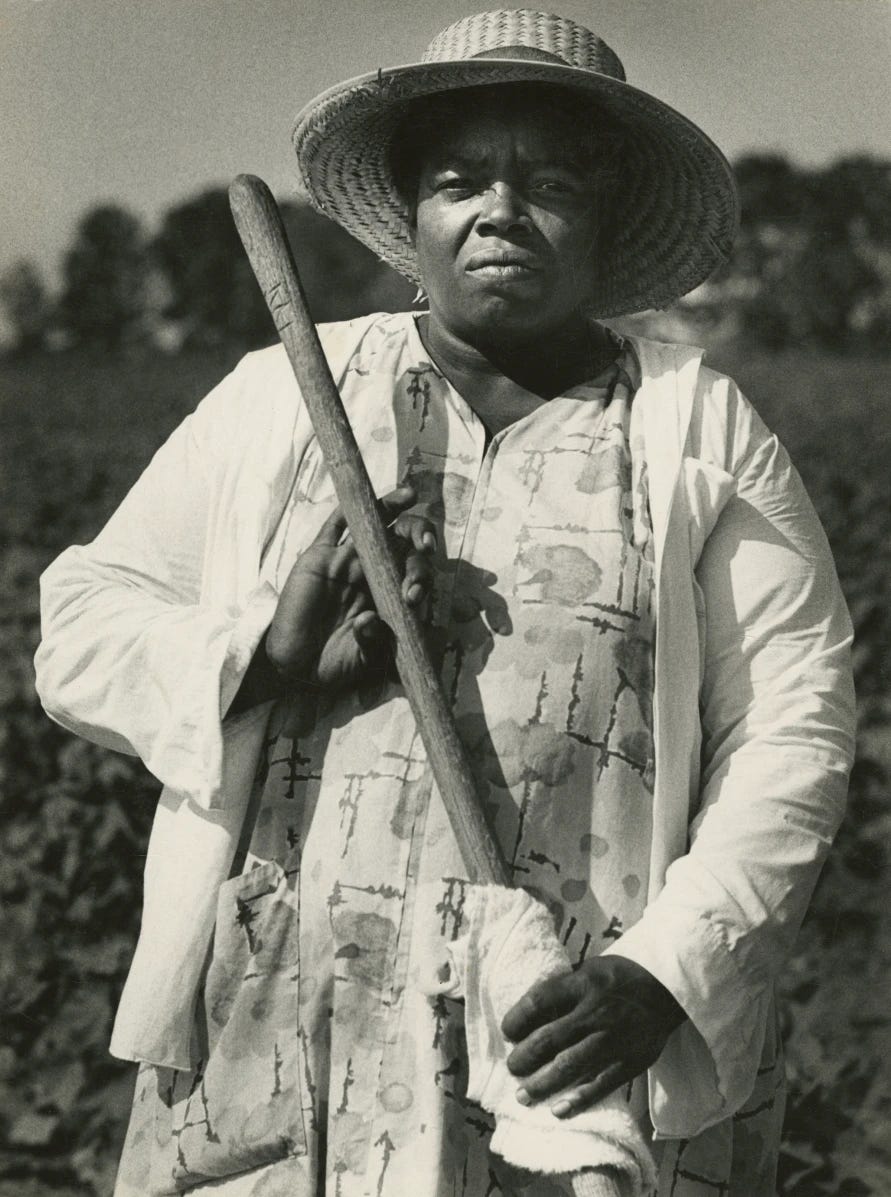
There is not much that is simple about the conditions of reproduction under poverty, or the conditions of reproduction in the world we live in as a whole. I’ll make you a brief list of these conditions here, even though this subject could be an essay in its own right. We have:
The forced choice of having children due to lack of contraceptive care and abortion access
Child mortality’s effect on birthing rates, including but not limited to: having more children because many don’t survive; becoming demoralized, bereaved, and heartbroken losing children to poverty; risking one’s life to give birth, particularly in places suffering heavily under medical apartheid
Forced sterilization, a state-inflicted atrocity targeting Black, Brown, and Indigenous women as a means of psychological, physical, and communal control
Conception, labor, delivery, and child-rearing— none of these are quick, easy choices. What a disservice we do to the marginalized to invest in such a myth. We haven’t even begun to speak about unwelcome pregnancy by sexual assault. The idea that not having children is “simple” when access to even basic contraception is not a worldwide guarantee is a cruel and lackluster analysis.
There is also a flip side to false choice that we often don’t speak of.
It is easy to understand false choice when it’s from the angle of forced birth. For some reason, we as a public struggle to recognize false choice when someone who would otherwise have a baby decides not to procreate because of the (solvable!) conditions around them.
False choice is also present in you wanting a baby but deciding one is not feasible for you because of the suffering you were born into. That is not a sympathetic viewpoint; that is a tragedy. If you would have a baby but you are scared of climate change crises that the rich caused, you should be enraged. If you would have a baby but you are under insurmountable education or medical debt (willful architecture designed by the ruling class), you should be enraged. If you would have a baby but you are living in high stress neighborhoods, if you would have a baby but you are food insecure, if you would have a baby if not for the conditions of crumbling capitalism — conditions that a very specific group of people made for their sole benefit — you should be fucking enraged. We have enough in the United States and in worldwide resources and technology to give everyone food, water, clothing, shelter, education, and medical support. Scarcity is invented for the profit of the wealthy. Poverty and scarcity are synonymous here. There is nothing innate or inevitable about any of the above conditions.
You have been brainwashed into thinking you have made the noble choice, and that you are somehow better, wiser, more deserving of understanding than people that choose to continue their communities anyhow. You have been brainwashed into converting your fury at the ruling class into smarmy internet takes towards the most vulnerable among us. In short, you are a bully because you were told that your suffering is more noble than their suffering. Stop it. You too are the victim of false choice; you too were born without your consent into a planet being strangled by the rich. You were born into a system where the bottom class is exploited, passively and actively, by the top class. Why are you angry at poor people for having children? What the fuck?
The Politics of Deservingness
I reference The Politic of Deservingness a ton on my various platforms, to the point where I most definitely need a stand-alone essay grappling with the topic. That will come to you soon (and I thank you for your patience), but to sum up what I am arguing:
A Politic of Deservingness organizes around granting access to an individual, a group, or a nation-state that people in power consider deserving in the form of resources, structural support, or sympathetic storytelling. While giving people what they “deserve” might sound fine or equitable on the surface, we must remember who is in charge of resource allocation and whether there might be bias present in doling out said resources.
In this context, a politic of Deservingness pops up when we discuss how children do not deserve poverty. At face value, that’s not a sentiment I disagree with. The problem arises when we ask the alternate question: so, who does deserve poverty? At what age is poverty is officially your fault? When we think about who does and does not deserve poverty, why are children our first thought? Why is it never disabled adults, the elderly, laborers in colonized countries still being exploited for fractions of pennies on the billions they make corporations? Why don’t we think of refugees and those displaced by rampant, unchecked imperialism? Do they deserve their circumstances?
This is why I heavily warn against thinking of resources and rights in terms of what we do and do not deserve: it’s far too inconsistent. Who deserves what and when and why changes depending on who is holding the resources. If the impoverished of the world are only deserving of our sympathy and humanizing if they agree to be voluntarily sterile, we have not made any moves toward justice. We are enacting the same vicious control the state does. We reduce the beauty of reproduction down to a dollar sign.
And furthermore! Just because it bears restating:
You should consider yourself a future poor person rather than a future rich one.
Let’s revisit tenant one of “why poverty exists.”
(1) to ensure the ruling class can experience extreme luxury and produce extreme waste without delay or consequence by having an endless workforce to exploit
Take a look at the word “endless.” If impoverished populations in this world suddenly, by way of some magic button, ceased to produce children… where do you think the ultra-wealthy would get the workforce they need to exploit? What fate have we already seen the mythical “middle class” subjected to?
Let’s remind ourselves of the birth climate in this world.
Births are trending downward worldwide and in the United States, and countries experiencing high birth trends are usually doing so because of the stage of development they’re in. The people currently least likely to have a kid in the United States are people experiencing poverty.
If you are in the United Sates, you are more likely to be pulled into poverty by having a child than you are to be someone in poverty voluntarily having a child.
If you feel good about your choice to not procreate because of your financial situation: why do you think that you are never going to touch poverty?
If you feel good about your choice not to procreate because of the world we live in: do you realize that was a choice made for you because of the worldwide conditions we’re inheriting? Are you okay with other people making that choice?
Does everyone in these two former groups know that new children are going to come anyways? Why would you not want to adopt a politic that takes care of them rather than bemoans their existence?
Disabled people are incredibly likely to be poor and are kept systematically in poverty by the welfare system in Western nations. Disabled people are also far more likely to be sterilized than their able-bodied counterparts, most especially if the disabled person in question is not white. Nations under colonization often do not have the resources for nation-wide welfare, so you are extra-vulnerable if you are experiencing dual-sided poverty (as in personal lack of access to funds and a structural lack of access to resources). You can become disabled at any point in time— in fact, if you intend on growing old, disability is a matter of when, not if.
The politics of Deservingness are far more likely to turn against you than they ever are to be for you.
Conclusion: I think more people need to be around kids in their life.
I think it’s easy to think of children as mouths to feed when you don’t get to see their wonder. I think it’s easy, simple even, to conceive of children as a selfish economic decision that you make when you think about birth as this nuclear, individual endeavor to “secure your legacy” or pass down wealth or something like that. Keeping children out of the sight of people that are not legally obliged to them makes it easy to market them as burdensome to people that don’t have them.
Most of all, I think the true selfishness lies in sitting still. The true selfishness here is not running, leaping, dancing, fighting, breathing a better world into existence for these children that will inherit the earth. Children will inherit this earth we are burning.
You know what’s easy? Hopelessness. It is absolutely easy to be hopeless when your politic is content with you sitting on your ass watching bad things happen!
I, for one, am proud of my parents and feel confident that I can raise a child who delights in being alive, even if they do not delight in the circumstances of their birth.
A letter to my teeny, tiny self.
Hello, you. I’m so glad we’ve been talking forever. I’m happy you thought to think of me when you were young and frustrated, isolated and misunderstood. Adults forget what it is like to be children so fast. They look at you like you’re being unreasonable for not complying with this world that does not make any sense. I’m happy that you never lost your gumption. This world is not meant to make sense. This world is meant to force you to either comply or rebel. God bless you for thinking of me in the moments you were forced to comply. Thank you for all the times you sat in some small prayer, or drew a picture, or wrote in a journal, “I will remember what this feels like. I will remember what it feels like to be this age, this small, and think the world and that my adults should be better than this. When I am big, I will remember what this feels like.” Everybody and they mama (and your mama!!) wanted to call you “unreasonable.” “Stubborn.” “Too idealistic.”
My blessed, darling, whip of a girl: they were all right. You will not reason with this world that wishes you dead. You will not budge on what you know to be true. And you are absolutely idealistic, in part because you remember what it is like to be voiceless and downtrodden. And you stay makin adults mad! Mad mad, at their grown age! you amaze me. I swore I would never forget you and so I have brought you along on this ride with me. Baybeeeeee are we big and loud now!! All your wishes for fame are coming true. Everyone can see us. We have a solid voice that carries and compels folks to sit down and listen— you are a master manifested. You even got that rasp that you always wanted (shoutout to 22 year old me for smoking all my troubles down the drain every day after work).
You keep me in steady, wonderful, easy love with children. You look up at me through time and space and remind me to go harder. One day I will introduce you to our daughter. One day we will all sit together and have tea. One day, with my baby on one knee and you on the other, we will laugh at stories of how I took a mug of piping hot Lipton on the bus every day since age seven; we will laugh and laugh at having lived this long despite some of our best efforts; we will laugh in joy at the space we have created for ourselves, where you and me and she can breathe together and think of one another as fleeting, dreaming, beautiful stubborn little girls.
Beloved child. Thank you for urging me never to let go of you. I do every bit of this for you.
Ismatu Gwendolyn <3
Resources (not linked in the article):
net worth poverty study from 2021: https://onlinelibrary.wiley.com/doi/abs/10.1111/jomf.12742
Poverty and Abortion: A Vicious Cycle. (n.d.). USCCB. https://www.usccb.org/committees/pro-life-activities/poverty-and-abortion-vicious-cycle
Birthrates are declining globally – here’s why it matters. (2022, May 20). World Economic Forum. https://www.weforum.org/agenda/2021/06/birthrates-declining-globally-why-matters
Picture and 1971 Essence Article on Fannie Lou Hamer
https://thelouisdraperproject.wordpress.com/2013/05/14/536/
This video from Kurzgesagt – In a Nutshell explaining the myth of overpopulation


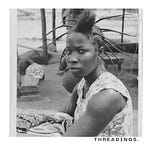

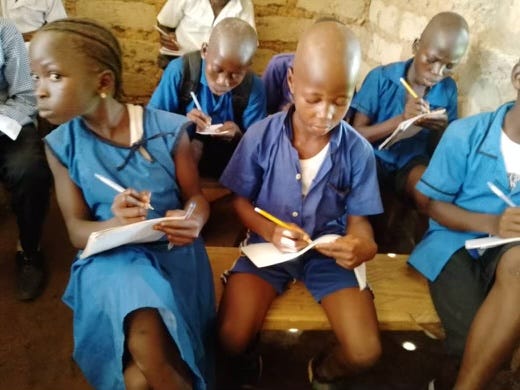
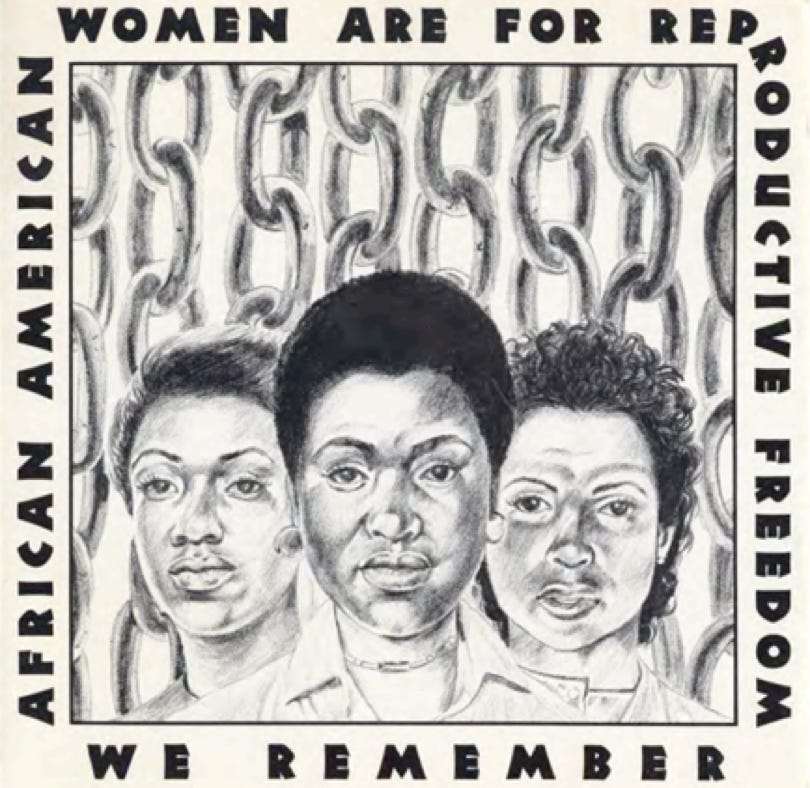
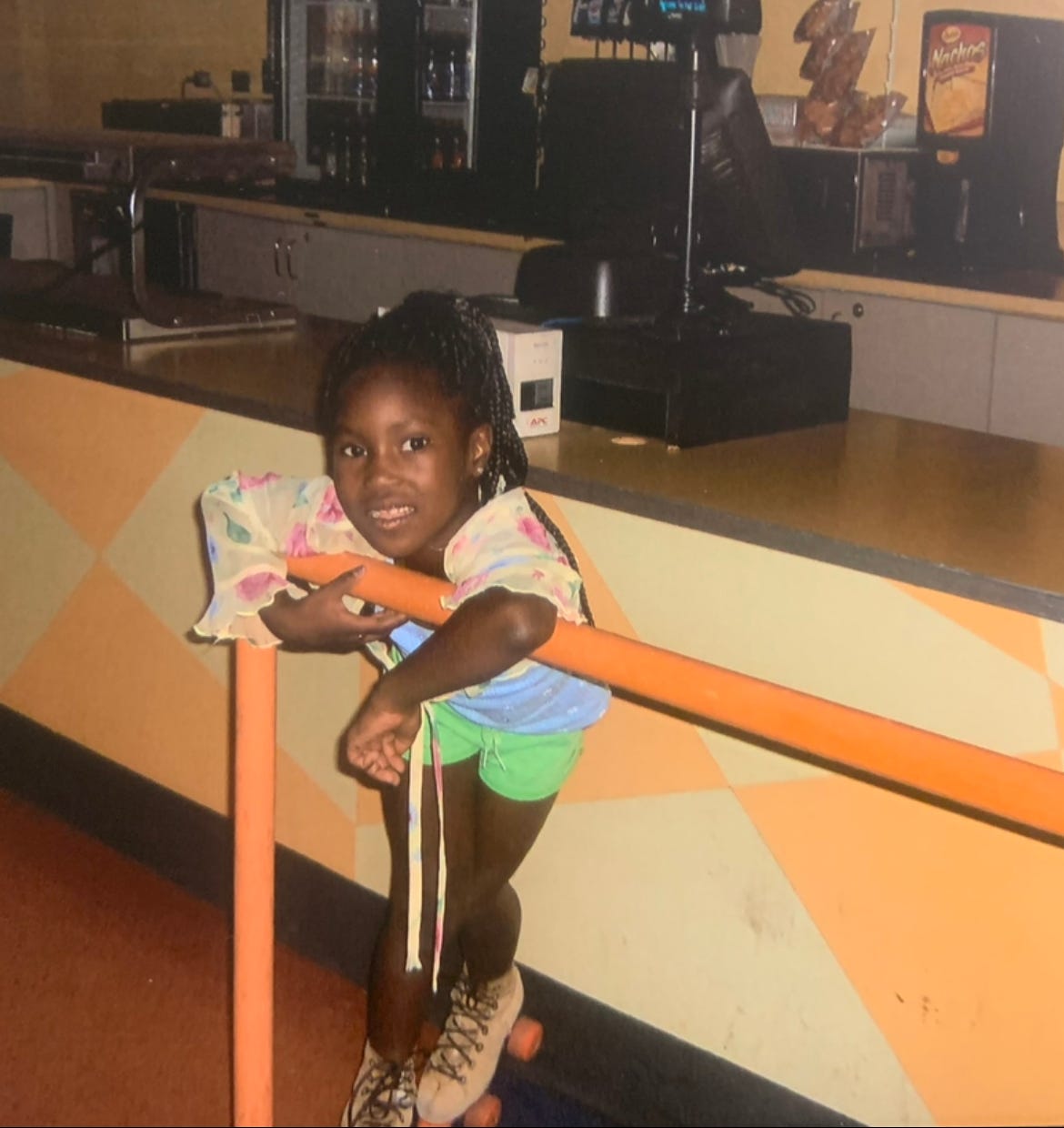

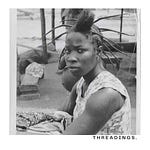

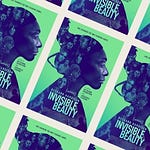




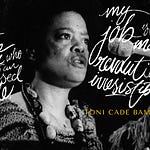
20| a love letter to my seven year old self: reproductive justice is economic justice